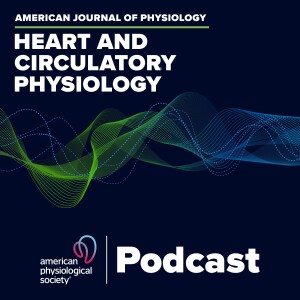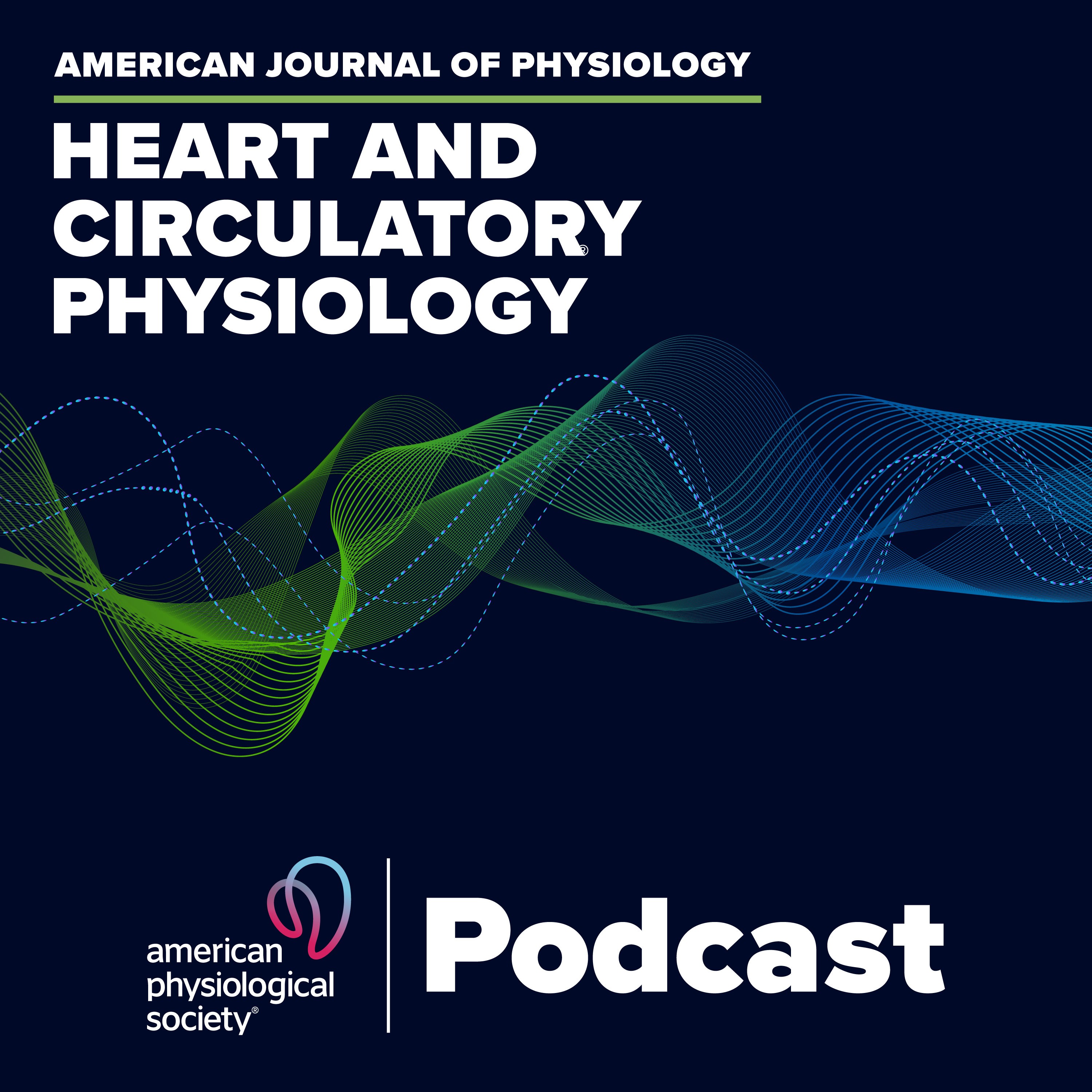Episodes

Wednesday Jan 25, 2017
Renin-Angiotensin System Signaling in Aged and Age-Exercised Rats
Wednesday Jan 25, 2017
Wednesday Jan 25, 2017
Does aging influence myocardial angiotensin II levels in the heart? Listen as Editor in Chief Irving H. Zucker (University of Nebraska Medical Center) interviews lead author Dong Sun (New York Medical College) and content expert Zsolt Bagi (Augusta University) about the recent study by Froogh et al, which compared three experimental groups (young sedentary, aged sedentary, and aged exercising rats) to determine why there is a mismatch between angiotensin II and angiotensin 1 – 7 in the aged heart. Does perivascular chymase and angiotensin production specifically target blood vessels? What do the authors speculate is the mechanisms by which exercise can alter ACE and ACE 2, including chymase? Find out this and more. Listen now.
Ghezal Froogh, John T Pinto, Yicong Le, Sharath Kandhi, Yeabsra Aleligne, An Huang, Dong Sun Chymase-dependent production of angiotensin II: an old enzyme in old hearts Am J Physiol Heart Circ Physiol, published online November 4, 2016. DOI: 10.1152/ajpheart.00534.2016

Monday Jan 23, 2017
Parental Vitamin D Deficiency Increases BP in Offspring
Monday Jan 23, 2017
Monday Jan 23, 2017
Do we really know the potential effects of maternal, and paternal, diets on offspring genotype and phenotype? In this podcast, Associate Editor Nancy Kanagy (University of New Mexico School of Medicine) interviews lead author Rudolf de Boer (University Medical Center Groningen) and content expert Mingyu Liang (Medical College of Wisconsin) about the exciting new work by Meems et al which investigated the cardiovascular effects on offspring born to vitamin D deficient parents. While the initial idea for this work by de Boer and colleagues sprang from the well-documented clinical observation that Dutch people born to parents who survived the post- World War II famine have excess cardiovascular risk, the study opens the door to discuss vitamin D and other dietary deficiency multi-generational effects on offspring. Is there a consensus among researchers on how to analyze epigenetic methylation data? Listen and find out.
Laura M. G. Meems, Hasan Mahmud, Hendrik Buikema, Jörg Tost, Sven Michel, Janny Takens, Rikst N. Verkaik-Schakel, Inge Vreeswijk-Baudoin, Irene V. Mateo-Leach, Pim van der Harst, Torsten Plösch, Rudolf A. de Boer Parental vitamin D deficiency during pregnancy is associated with increased blood pressure in offspring via Panx1 hypermethylation Am J Physiol Heart Circ Physiol, published online December 1, 2016. DOI: 10.1152/ajpheart.00141.2016

Friday Jan 20, 2017
Mitochondrial Dynamics Impact Endothelial Function
Friday Jan 20, 2017
Friday Jan 20, 2017
What role does mitochondrial fragmentation play in endothelial dysfunction under conditions of low glucose? Listen as Consulting Editor Michael Wolin (New York Medical College) interviews lead author Michael Widlansky (Medical College of Wisconsin) and content expert Prasad Katakam (Tulane University School of Medicine) about the new work by Tanner et al which investigated the often-overlooked condition of low glucose in humans. Does the mitochondrial fission protein dynamin-related protein 1 (DRP1) regulate vascular endothelial function through ROS production? Our experts explore the work by Widlansky and colleagues that leads to new and engaging open questions. How is DRP1 activated and what docking proteins may be involved? Listen and find out.
Michael John Tanner, Jingli Wang, Rong Ying, Tisha B Suboc, Mobin Malik, Allison Couillard, Amberly Branum, Venkata Puppala, Michael Eric Widlansky Dynamin-Related Protein 1 Mediates Low Glucose-Induced Endothelial Dysfunction in Human Arterioles Am J Physiol Heart Circ Physiol, published online December 6, 2016. DOI: 10.1152/ajpheart.00499.2016

Monday Jan 09, 2017
TLR9 in Post-Infarct Cardiac Rupture
Monday Jan 09, 2017
Monday Jan 09, 2017
Is myocardial rupture in acute myocardial infarction preventable? Perhaps, according to new research by Omiya et al into the mechanisms underlying myocardial rupture in a toll-like receptor 9 knockout mouse model compared to a permanent coronary ligation model. In this podcast, Associate Editor Junichi Sadoshima (Rutgers New Jersey Medical School) interviews lead author Kinya Otsu (King's College London British Heart Foundation Centre of Excellence) and content expert Richard Kitsis (Albert Einstein College of Medicine) about the work by Otsu and colleagues exploring why toll-like receptor 9 shows cardioprotective effects on myocardial rupture but does not play a role in inflammation. Why are myocardial fibroblasts affected but inflammatory cells are not affected by TLR-9 knockout, and what exactly is the role of myofibroblasts in preventing cardiac rupture? What are the clinical implications for acute MI patients going forward? Listen and find out.
Shigemiki Omiya, Yosuke Omori, Manabu Taneike, Andrea Protti, Osamu Yamaguchi, Shizuo Akira, Ajay M. Shah, Kazuhiko Nishida, Kinya Otsu Toll-like receptor 9 prevents cardiac rupture after myocardial infarction in mice independently of inflammation Am J Physiol Heart Circ Physiol, published online December 1, 2016. DOI: 10.1152/ajpheart.00481.2016

